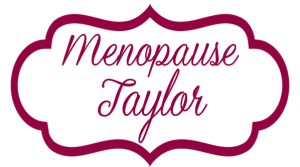Dr Taylor’s YouTube Menopause Education Syllabus
You are here:Home/Dr Taylor’s YouTube Menopause Education Syllabus
Watch my videos to learn how every stage of menopause affects your whole body and your whole life, and you can use my teaching to help manage it.
While you can navigate the syllabus using sections, categories categories, and tags for easy access to specific information, I recommend strongly that you watch the videos in order. You’ll need, for example to learn some basic anatomy before you can understand how estrogen loss – the essence of menopause – affects your entire body. Use the worksheets and my book (you can order your copy here) to get work your way through the syllabus, and take your time to get the best from my education – you deserve nothing less!
love
Barbie
- Outline Notes
- Worksheet
284.
Comparison of Osteoporosis & Alzheimer’s
How many similarities can you cite between osteoporosis and Alzheimer’s? Do they seem to be just too different to think of any? Well, if you watch this video, you will most certainly view things quite differently afterward.
Alcohol Abuse,Anatomy Risk Factors,Balance,Biphosphonates,Bone density,Bone Quantity,Brain,Brain Fog,Brain Shrinkage,DEXA,Diabetes,Diagnosis,Diet,Early Diagnosis,ERT,Estrogen,Exercise,Family History,Fracture,Guidelines,Hips,HRT,Insurance,Memory,Premature Menopause,Receptor Sites,Sedentary,Silent Disease,Smoking,Spine,Statistics,Weight-Bearing Exercise,Wrist,261.
Preventing Alzheimer’s by Managing Stress, Sleep, Social Interaction, & Sobriety
Are you familiar with the 4-S Method of preventing Alzheimer’s? Probably not since I made it up! The 4 Ss are: Stress, Sleep, Social Interaction, and Sobriety. And in this video tutorial, I’ll teach you how they each contribute to...
Aging,Alcohol,Alcohol Abuse,Anatomy,Brain,Cardiovascular System,Chronic Stress,Circadian Rhythm,Coping Skills,Glucose,History,Immune System,Insomnia,Insulin,Lipids,Neurogenesis,Neurons,Neurotransmitter,Oxytocin,Sleep,Sleep Apnea,Sleep Deprivation,Social Interaction,Social Isolation,Stress,Stress Hormones,241.
Different Kinds of Dementia … Including Alzheimer’s
Did you know that there are many different kinds of dementia? Can you name some of them? In order to understand Alzheimer’s Disease, it’s wise to first understand dementia in general. And this video will teach you everything you need...
Alcohol Abuse,Anatomy,Behavioural Changes,Brain,Cognition,Cognitive Impairment,Dementia,Genetics,Huntington's Disease,Learning,Lewey Bodies,Memory,Neurons,Normal Pressure Hydrocephalus,Parkinson's Disease,Pick's Disease,Spasms,Statistics,Surgery,Tremor,Vascular Dementia,Wernicke's Disease,World Health Organization,245.
How to Know if You’re at Risk for Alzheimer’s Disease
Do you know the risk factors for Alzheimer’s Disease? In other words, do you know how to determine if you’re at risk for it? Well, that’s precisely what I’ll cover in this video. You’ll get the whole list of all...
Aging,Alcohol Abuse,BMI,Cholesterol,Chronic,Dementia,Depression,Diabetes,Diagnosis,Estrogen,Family History,Gender,Genetic Mutation,Genetic Predisposition,Genetics,HDL,Heart Attack,High Blood Pressure,Homocysteine,LDL,Learning,Obesity,Sedentary,Sleep Apnea,Smoking,Snoring,Social Isolation,Stress,146.
What Appears at Menopause?
Menopause is like a magic trick; WHAM! All sorts of new things appear. From your head to your toes, things change in ways that you can’t even imagine. Watch this video to put things into perspective in terms of what...
Acne,Alcohol Abuse,Cravings,Depression,Dry Skin,Empowerment,Estrogen,Fatigue,Forgetfulness,Hair Loss,Headaches,Hot Flashes,Insomnia,Irritability,Joint Pain,Joint Stiffness,Menopausal Zest,Mood Swings,Night Sweats,Periods,Progesterone,Self-Confidence,Self-Esteem,Unwanted Hair,Urinary Leakage,UTI,Vaginal Dryness,Weight Gain,147.
What Disappears at Menopause?
Disappearing acts! Menopause is full of them. The disappearance of your periods is just the most obvious. There are a whole bunch of other things that aren’t as obvious ... but are much more significant. Watch this video to find...
Alcohol Abuse,Bone Loss,Dry Skin,Estrogen,Family,Forgetfulness,Hair Loss,Insomnia,Irritability,Periods,Relationships,Self-Confidence,Sex Drive,Testosterone,Urinary Incontinence,Vaginal Dryness,Vaginal Shrinkage,Weight Gain,149.
What Gets Worse at Menopause?
When it comes to the things that get worse at menopause, the worst, by far, is your risk for certain diseases. There are six in particular. Do you know what they are? Do you know their relative risks to one...
Alcohol Abuse,Arteries,Bone Quality,Brain,Cervix,Cravings,Diet,Dry Skin,Estrogen,Exercise,Fatigue,Forgetfulness,Hair Loss,Insomnia,Lifestyle,Misinformation,Mood Swings,Progesterone,Risk Factors,Sex Drive,Statistics,Tailoring,Unwanted Hair,Urinary Incontenence,Uterus,Vaginal Dryness,Vaginal Shrinkage,Vegan,Weight Gain,145.
What Gets Harder at Menopause?
Can you think of all the things that get harder at menopause? Anatomically harder, physically harder, socially harder, emotionally harder. There are all sorts of things that get harder! Tune into this video. It’s the easy way to learn about...
Aging,Alcohol,Alcohol Abuse,Arteries,Blood Clots,Career,Cravings,ERT,Exercise,Family,Heart Attack,HRT,Insomnia,Joint Pain,Ovaries,Oxytocin,Psychology,Relationships,Self-Confidence,Strokes,Weight Gain,Window of Opportunity,64.
Psychological Symptoms of Menopause
We’ve addressed the long list of physical symptoms of menopause, but what about the psychological symptoms? For some women, these are the most significant of all. Can you list a few? Don’t worry; in this tutorial, I’ll present them all...
Aggression,Aging,Alcohol Abuse,Anxiety,Attention,Attitude,Confusion,Crisis,Depression,Fatigue,Memory,Mood Swings,Psychology,Relationships,Self-Esteem,Substance Abuse,Suicidal,










